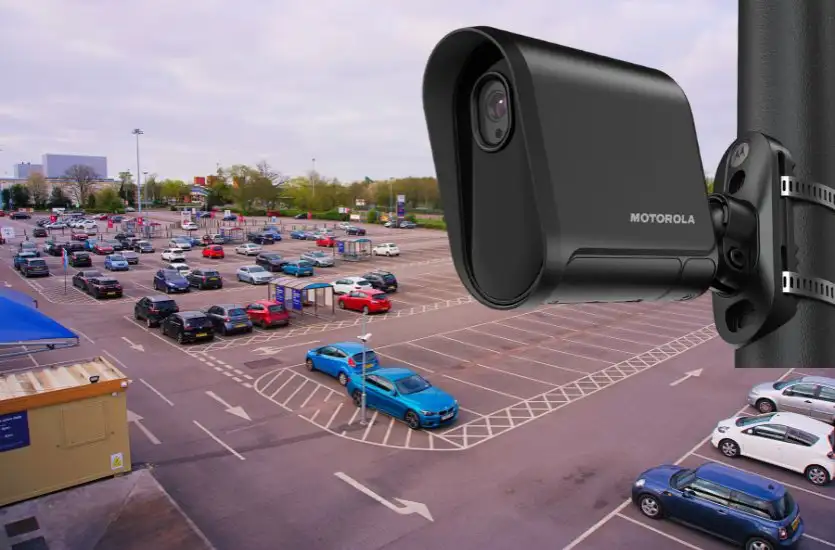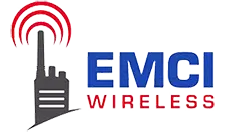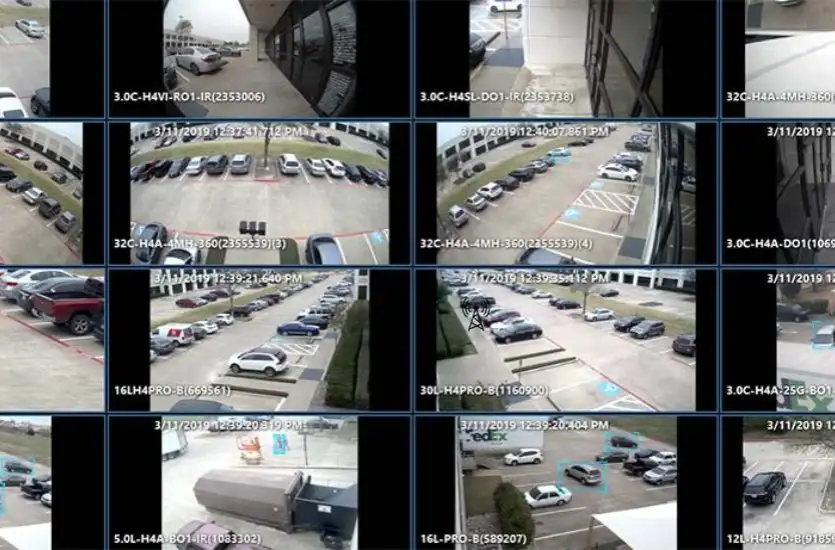License Plate Recognition (LPR) technology is changing how communities across Florida stay safe and organized. Using advanced cameras and smart software, LPR systems quickly capture and identify license plates, making it easier to track vehicles linked to crimes, manage parking, and even improve security in business and retail spaces.
From law enforcement to campus safety, these systems are becoming a valuable tool. In this article, we’ll talk about what LPR technology is, how it works, and why it’s gaining traction across Florida, and other states, too.
What is LPR Technology?
If you’ve ever watched a crime show on television or Netflix, you’ve likely seen this very technology in action without realizing it. This technology, known as license plate reader technology, automatically captures images of vehicle license plates and turns them into data that can be searched and compared. This process relies on cameras and advanced software to scan license plates on vehicles passing by.
How does it work? First, cameras capture images of passing cars. Then, the software uses Optical Character Recognition (OCR) to translate license plate numbers from images into readable data. With the help of machine learning algorithms, these systems can identify plates accurately, even in challenging weather or lighting conditions or when vehicles are moving quickly.
Once captured, the data can be checked against various databases, helping law enforcement track down vehicles associated with crimes, expired registrations, or other alerts. But license plate reading technology isn’t just for police departments—it’s also used in parking management, business complexes, and commercial shipping.
Applications of LPR Technology
While this technology is changing the game in helping to solve crimes faster and prevent future crimes from happening, there are some who question how it is used. One of the biggest questions out there is how LPR technology impacts privacy. Thankfully, the answer is simple. LPR data is shared exclusively with law enforcement agencies for specific investigative purposes. The intention is not for it to be sold to third-party businesses. Access to this data is strictly limited to authorized personnel with a legitimate reason for conducting such a search.
So, where can LPR technology help? Let’s look at some industry examples.
Parking Management
LPR systems make parking operations more efficient by automating vehicle entry and exit. This cuts down on manual checks and allows property managers to easily verify that only authorized vehicles enter certain areas, such as gated communities, airports, or private complexes. The data generated by these systems also provides insights for maximizing parking space usage, which is especially useful in crowded areas.
Law Enforcement
Law enforcement agencies use LPR systems to identify vehicles connected to criminal cases, such as stolen or wanted vehicles. These systems quickly flag vehicles of interest, enabling police to take swift action. For example, the University of Florida implemented LPR technology in late 2020, placing cameras in key campus locations to flag vehicles with expired tags or wanted status. The purpose was and continues to be to help campus and local police create a safer environment for students and faculty.
However, the University of Florida is not the only example of LPR technology’s impact on public safety. The Sebastian Police Department began using License plate readers in 2021, starting with a few units and expanding to a network of 97 cameras across the city. These cameras help the department capture and identify vehicles tied to criminal activities, significantly increasing their ability to monitor and respond to incidents throughout the community.
LPR technology’s impact goes beyond individual cities. Nationwide, LPR systems assist in solving over 700,000 crimes annually, accounting for about 10% of all reported crimes. In Florida, LPR systems are widely used across multiple counties.
- Broward County: LPR technology is deployed across 15 cities.
- Dade County: 21 cities utilize LPR systems.
- Palm Beach County: 13 cities have implemented LPR technology.
- Tallahassee: The Tallahassee Police Department, alongside other local agencies, implemented LPR cameras across several cities
- Miami-Dade and Broward Counties: Most communities have integrated LPR technology, with only a few exceptions.

Commercial Shipping
Cargo theft in ports is a real problem. And so, LPR technology can help track the movement of commercial vehicles, especially at ports and freight terminals where efficiency—and safety—are important. By automating entry and exit tracking, LPR reduces human error, prioritizing that only authorized vehicles access secured areas while also expediting the check-in process for regular freight operations.
Retail and Business Complexes
For shopping centers and business parks, LPR technology helps manage parking access. Only authorized vehicles can park in designated areas, providing added security for patrons and assets. By monitoring parking lots, these systems help deter theft and suspicious activities.
Advantages of LPR Technology for Community Security
LPR technology brings several advantages to community security, helping to make both crime prevention and resource management easier. Here’s how LPR technology strengthens public safety:
- Deterrence: The presence of LPR cameras alone often discourages criminal activity. When potential offenders see cameras visibly placed in certain areas, they’re more likely to avoid those locations, knowing their actions could be tracked.
- Efficient Resource Allocation: LPR systems send alerts to law enforcement when flagged vehicles are detected, allowing officers to quickly respond and focus their resources where they’re needed most.
- High Accuracy and Reliability: With advanced OCR and machine learning, LPR systems perform reliably in challenging situations, such as low-light conditions, bad weather, or when vehicles are moving fast.
- Improved Public Safety: As over 70% of crimes involve vehicles, LPR systems are essential for helping law enforcement identify suspects and solve cases.
The Future of LPR Technology in Florida’s Communities
Based on the statistics we shared earlier, it’s pretty clear that LPR technology is here to stay. And for good reason. But, there will continue to be guidelines in place to make sure digital license plate technology is used for the right reasons and within the confines of the law. Today, LPR technology is subject to strict guidelines to prioritize that its use remains lawful and responsible. In Florida, this technology is managed by policies that balance the need for public safety with privacy concerns. ALPR systems are restricted to scanning license plates visible from public spaces, and their use is strictly limited to criminal justice purposes, such as investigating and solving crimes.
Access to ALPR data is limited to authorized law enforcement personnel trained in its proper use and following agency protocols. Any data captured, including plate images, location, date, and time, does not contain personal information. Access to identifying information connected to a plate requires separate, legally authorized database access, adding an additional layer of privacy protection.
Data retention is also regulated: ALPR data must be purged according to state law, typically within 30 days, unless it is part of an active investigation. Law enforcement agencies must maintain oversight of data access, regularly audit the use of ALPR systems, and report compliance to make sure the systems are only used for community safety purposes.
EMCI Wireless and Motorola Solutions LPR Camera Systems
At EMCI Wireless, we’re proud to be a Motorola Solutions channel partner and a preferred reseller of both the Vigilant Solutions and Avigilon product lines. And, we’re happy to share that through our partnership with Motorola, we offer some of the best LPR systems on the market.
The AvigilonH4 LPC camera is built to capture clear license plate images even at typical vehicle speeds. With Avigilon’s LPR analytics technology, the camera delivers highly accurate results, using infrared illumination and light filtering to read license plates in various lighting conditions and from varying distances.
We also provide the L6Q Quick-Deploy LPR Camera System. This camera combines advanced LPR capabilities with an easy setup process, making it accessible for both law enforcement and private use. Its flexible power options—high-capacity battery, solar, or direct line—mean it can be deployed in many different locations. Configuration and activation are as simple as using Motorola’s Mobile Companion app on any smartphone.
Additionally, Vigilant VehicleManager software lets agencies manage and analyze license plate data without fail. With powerful search functions and customizable data retention options, teams gain precise, secure control over their LPR data, optimizing safety initiatives across the board.
Contact EMCI Wireless for a Free Consultation to Discuss how LPR Technology Can Work For You
We are proud to partner with Motorola’s Solving for Safer initiative. This means that we are dedicated to helping businesses across a wide range of industries create a better and safer worker environment for Florida residents, workers, and visitors.
If your law enforcement agency, campus security office, or transportation network is in need of LPR technology, we can help. Contact us today or schedule a free consultation to discuss your needs. We’ll partner with you on the best Motorola technology to keep Florida safe.

